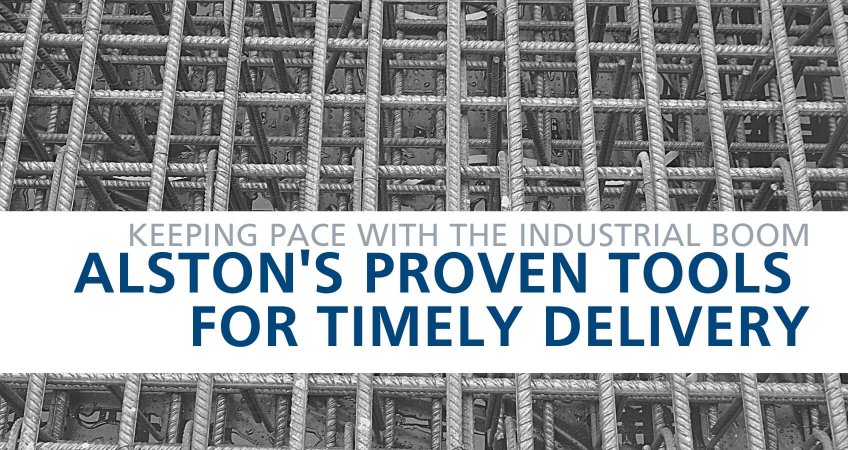When increasing demand for e-commerce solutions, industrial development is at a five-year high, Alston is keeping pace with demand to build industrial facilities on time.
Technology drives global economic development. We learned last year that a lot of meaningful work can be delivered from the comfort of our own homes – but not all of it. While we are seeing increased capabilities in the use of artificial intelligence and machine learning, we still need people to physically build new facilities for clients.
So, while Alston is investing in new technology and piloting new software to improve and be more efficient in the field, we are also actively solving for material shortages and delays in real time using human intelligence – with the help of our in-house scheduling department.
Few contractors have an experienced scheduling team like ours who focus on training project staff in scheduling “industry best practices”, coupled with providing input and oversight on project-specific timelines as well as tracking schedules company-wide.
Alston recognizes the importance of on-time delivery to industrial clients, so we prioritize it.
Our scheduling department provides technical oversight for each project schedule to verify its logic and accuracy. To help centralize project variables and validate the critical path, we use industry leading software:
But software only takes us so far to ensuring on-time construction delivery.
During construction, Alston’s scheduling team monitors the critical path’s progress and proactively works with Field Management to mitigate delays and disruptions with possible work around scenarios and sequences. At standing monthly meetings, the scheduling team verifies progress against each project schedule by reviewing materials procurement issues and tracking Key Performance Indicators (KPIs). Alston’s proprietary Cashflow and Earned Schedule program compares the anticipated cash flow against the work-in-place billings, coupled with built-in Earned Schedule metric analysis. This helps to identify and assess the project’s overall health, in addition to just monitoring the CPM. When they discover variances in these metrics, they investigate the cause with the project management team, and work to rectify it.
The scheduling tracking software is helpful, but the schedulers are the ones who work with on-site leadership to help ensure projects are delivered as promised.
Technology is useless without the right team in place to interpret and utilize the data effectively.
We supplement our technological capabilities with the insight of our team members and established partnerships with our network of trusted subcontractors.
Together, we put a lot of effort into planning for delivery during preconstruction to offset industry-wide delays caused by material and labor shortages. We then mobilize on site with reliable team members who deliver against these plans through close collaboration.
We are consistently delivering projects on time by setting clear expectations with owners before we even break ground. We are not downplaying significant shortages in labor and materials. We factor those challenges into our initial schedules, gain consensus on the timeline and track our progress throughout construction. With already-tough timelines in the market, models, drones, and field scanning tools help us control quality in real time and avoid schedule delays due to preventable rework.

